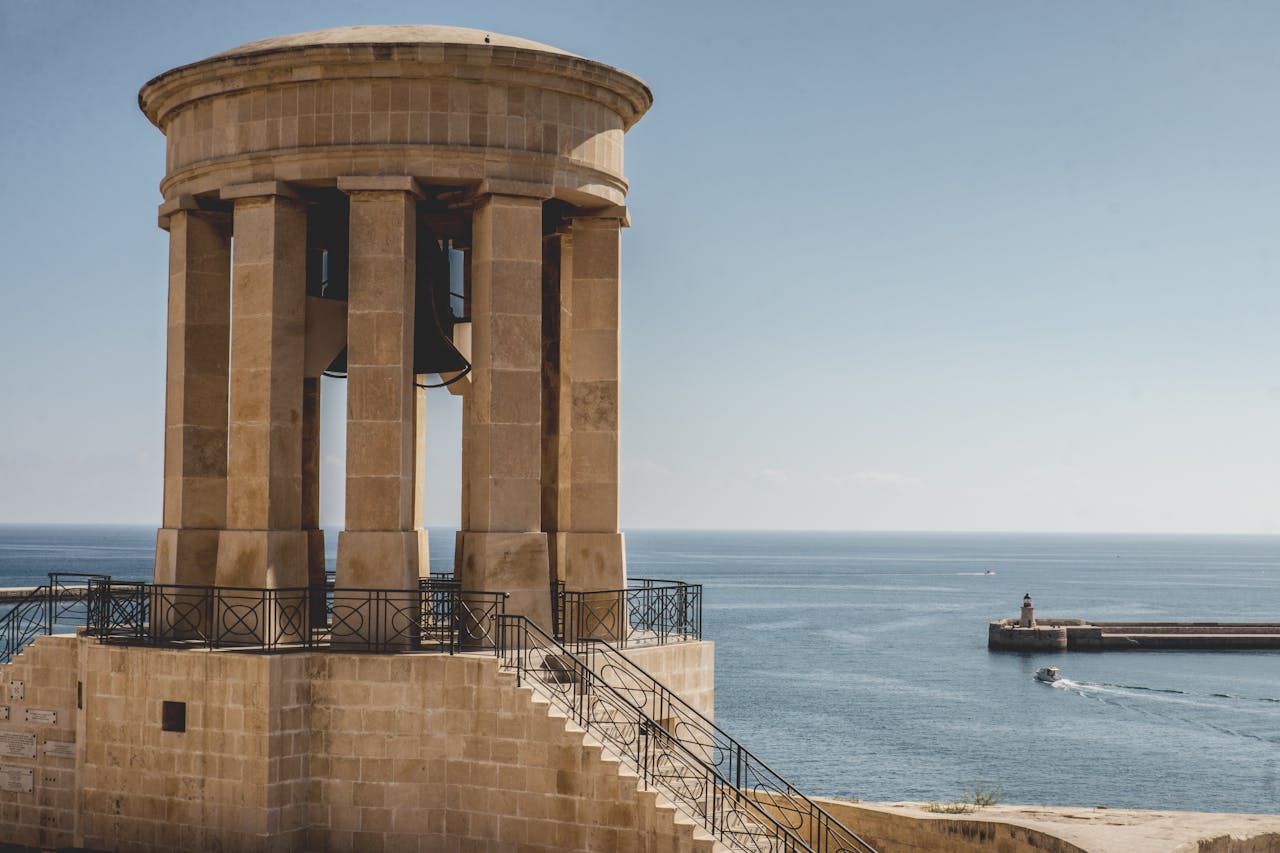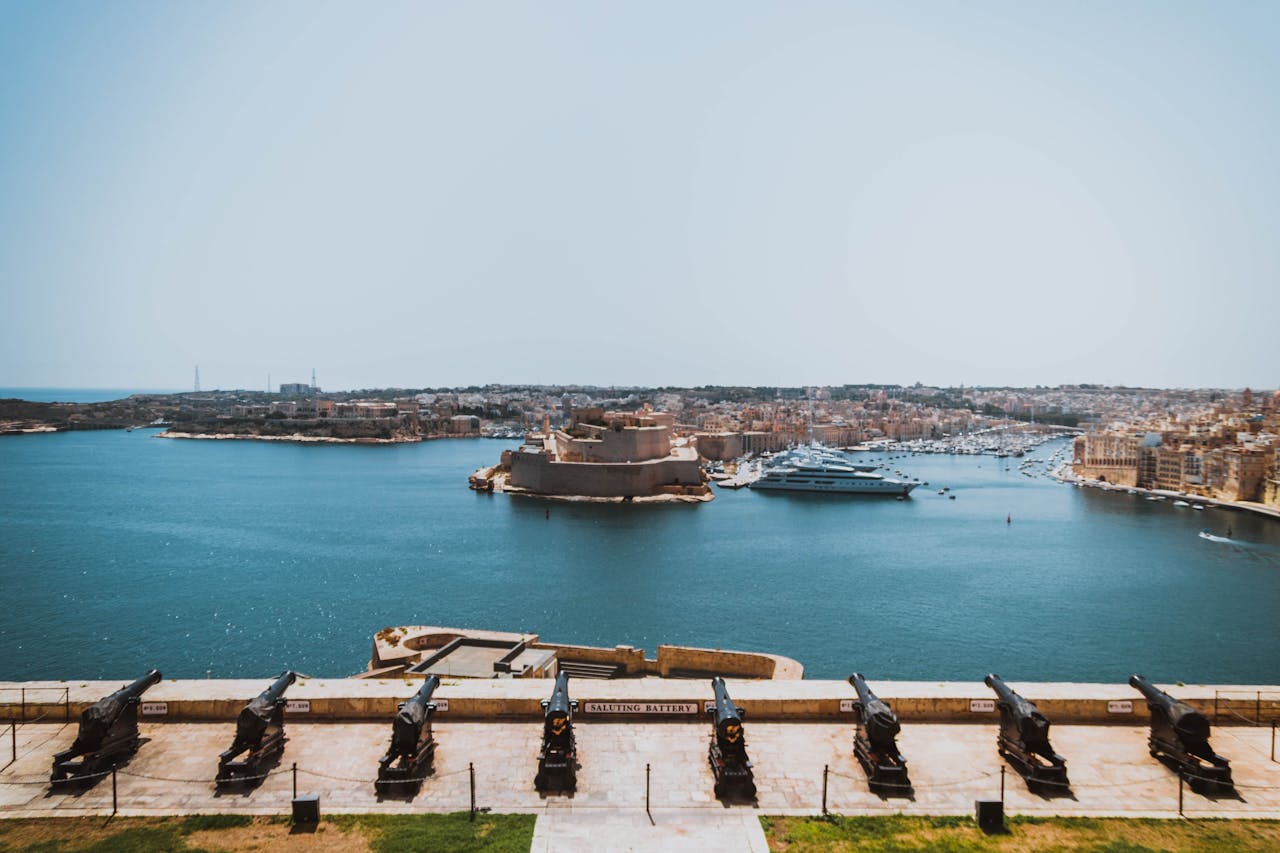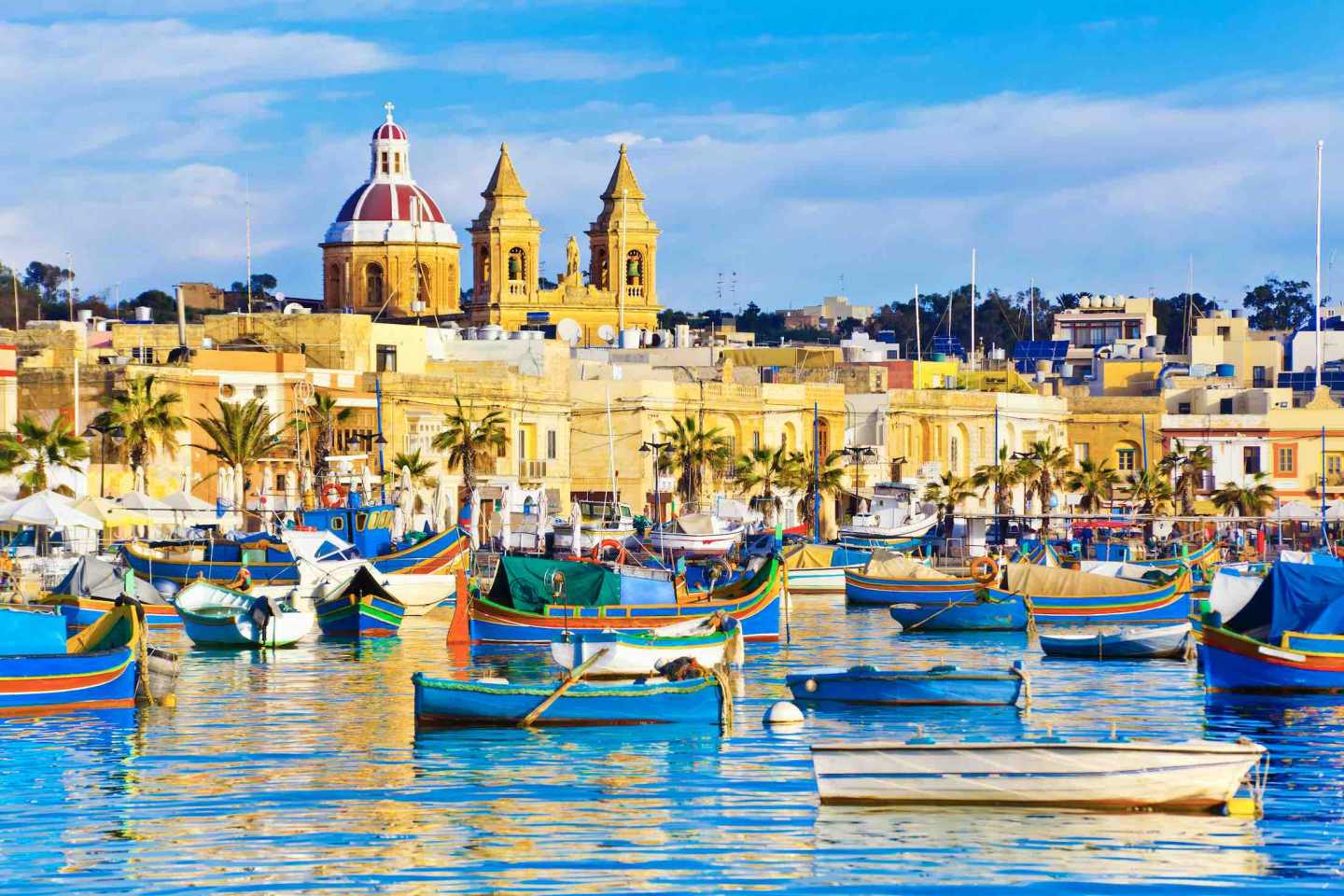馬耳他市場研究
馬耳他的市場研究可以深入了解其細微差別,這對於任何有抱負的企業家或成熟企業來說都是至關重要的。
這個國家有四個大島和周圍一些小島。這些島嶼地勢平坦,多岩石,海岸線佈滿懸崖和海灣。他們也沒有任何河流或山脈。這個小國有著豐富的歷史。在其歷史的不同時期,希臘、羅馬、波斯、法國和大英帝國都想統治它。
該島首府瓦萊塔在 20 世紀 80 年代成為世界遺產,因為其許多建築的歷史可以追溯到 16 世紀。馬耳他曾在第一次世界大戰和第二次世界大戰期間充當醫務室,幫助士兵恢復健康。
什麼是馬耳他的市場研究?
馬耳他市場研究分析當地市場動態、消費者行為、競爭對手格局和產業趨勢。它是明智的業務決策的基石,提供對市場需求、新興機會和潛在挑戰的寶貴見解。
從本質上講,馬耳他的市場研究深入了解當地經濟、文化偏好、監管框架和塑造商業格局的技術進步的細微差別。
為什麼企業需要在馬耳他進行市場研究?

馬耳他市場研究為馬耳他消費者的偏好、行為和購買模式提供了寶貴的見解。這種理解使公司能夠客製化他們的產品、服務和行銷策略,以有效地滿足目標受眾的需求。
它幫助企業識別新興市場趨勢、利基機會和未滿足的消費者需求。透過密切關注市場動態,公司可以利用新機會並領先競爭對手。
透過市場研究,公司可以預測潛在風險並制定緩解策略,維護自身利益並最大程度地減少潛在損失。然而,它對企業還有許多其他好處,包括:
- 定向行銷:馬耳他的市場研究使企業能夠有效地識別和細分目標受眾,從而實現更精確、更有針對性的行銷工作,與馬耳他消費者的偏好和需求產生共鳴。
- 風險緩解:透過了解市場動態和消費者行為,企業可以預測潛在的風險和挑戰,使他們能夠實施主動的風險緩解策略並保護其投資。
- 機會識別:透過市場研究,企業可以發現新的市場機會、利基細分市場和未滿足的消費者需求,為創新和策略成長計畫奠定基礎。
- 競爭優勢:透過監控競爭對手的活動、市場趨勢和消費者偏好,企業可以確定可以在哪些領域脫穎而出並獲得競爭優勢。
誰在馬耳他使用市場研究?
從 小型新創公司到大型企業各種規模和跨行業的企業都依賴市場研究來了解市場動態、消費者偏好和競爭格局。透過利用市場洞察,企業可以優化策略、創新產品並增強競爭地位。
馬耳他的政府機構和監管機構 也利用市場研究為決策提供資訊、評估市場狀況並監控行業趨勢。市場洞察對於制定法規、促進經濟成長和確保市場消費者保護至關重要。
非營利組織和非政府組織 在馬耳他,利用市場研究來了解社區需求、評估其計劃的有效性並確定乾預領域。市場洞察幫助非營利組織有效地分配資源並最大限度地發揮其對社會的影響。
馬耳他的企業家和新創企業 依賴市場研究來驗證經營理念、評估市場需求並識別潛在競爭對手。市場洞察幫助企業家做出明智的決策並制定成功啟動和擴大企業規模的策略。
我們目前的市場回顧和建議
在 SIS International,我們認為在技術進步和消費者行為變化的推動下,馬耳他正在經歷跨行業的快速數字轉型。企業應利用數位平台和數據分析來增強客戶體驗並推動成長。
馬耳他也越來越重視永續性和企業社會責任。消費者越來越青睞環保產品和道德商業行為。企業應將其策略與永續發展目標結合起來,以引起具有環保意識的消費者的共鳴。
展望未來,我們預計馬耳他的技術、醫療保健、旅遊和再生能源等關鍵領域將持續成長和創新。擁抱數位化、永續發展和以客戶為中心的企業預計將在不斷變化的市場格局中蓬勃發展。
SIS International 在馬耳他市場研究的預期結果

安全資訊系統 馬耳他的服務旨在為我們的客戶帶來切實的成果並推動業務成功。以下是企業與我們合作時可以期待的:
收入成長:
SIS 服務旨在支援在馬耳他經營的企業的收入成長計劃。透過識別市場機會、優化產品供應和增強行銷策略,我們幫助客戶釋放成長潛力並實現可持續的收入成長。
節省成本:
透過提供數據驅動的見解和策略建議,我們使客戶能夠優化資源分配和簡化運營,從而節省成本並提高效率。我們的市場研究服務可協助客戶最大限度地提高投資回報並在業務營運中實現更高的成本效益。
加速創新:
透過我們以創新為重點的市場研究方法,我們為馬耳他的客戶激發創造力、促進創新並加速產品開發。了解不斷變化的消費者需求和市場趨勢,我們幫助客戶保持領先地位並推動行業創新。
提高投資報酬率:
與 SIS International 合作在馬耳他進行市場研究,為我們的客戶帶來更高的投資回報。客戶可以利用我們的專業知識、行業知識和創新的研究方法來取得可衡量的成果,提高他們的競爭優勢,並最大限度地提高他們的市場研究投資投資回報率。
社群
儘管馬耳他由四個大島組成,但人們只居住在三個島嶼上。大多數活動都在馬耳他或大陸進行。馬耳他的一些熱門景點包括斯利馬和聖朱利安。
兩者中最著名的是斯利馬。這座城市是遊覽島嶼時最好的購物地點。這裡也是馬耳他一些最好的酒店的所在地。喜歡各種精緻休閒餐飲的人會發現斯利馬是完美的選擇。
聖朱利安以前是一個漁村,現在是一個旅遊住宿小鎮。它的北端位於聖喬治灣,擁有美麗的沙灘。在巴洛茨灣和斯賓諾莎灣也很容易找到色彩繽紛的馬耳他漁船。大多數人前往聖朱利安是為了體驗前衛的夜生活。
馬耳他的主要旅遊景點

馬耳他以其豐富的歷史、迷人的風景和文化遺產而聞名,每年吸引數百萬遊客。以下是馬耳他七個最重要的旅遊景點及其意義:
- 瓦萊塔: 馬耳他的首都瓦萊塔被聯合國教科文組織列為世界遺產,以其歷史建築、宏偉的防禦工事和文化地標而聞名。遊客可以探索聖約翰聯合大教堂、大師宮殿和上巴拉卡花園等景點,同時沉浸在這座城市豐富的歷史和充滿活力的氛圍中。
- 姆迪納: 姆迪納是一座中世紀城牆城市,坐落在山頂上,享有馬耳他鄉村的全景。遊客可以漫步在狹窄的鵝卵石街道,參觀歷史悠久的宮殿和教堂,體驗這座城市永恆的魅力和建築之美。
- 藍洞:藍洞是馬耳他崎嶇海岸線上的一系列海蝕洞和岩層。它以其藍色的海水和自然美景而聞名。
- 大力水手村:大力水手村是 1980 年音樂電影《大力水手》的取景地,如今已成為熱門旅遊景點,以色彩繽紛的木結構建築、日常娛樂和適合家庭的活動為特色。
- 戈佐島:馬耳他的姊妹島戈佐島以其風景如畫的鄉村、迷人的海灘和寧靜的村莊而聞名。遊客可以探索維多利亞城堡、蔚藍之窗(以前的)和杜韋拉灣令人驚嘆的海岸景觀等景點。
重點產業
馬耳他人靠旅遊業和電子產品、造船和修理、建築以及食品和飲料賺錢。島民在許多不同領域都有技能,但他們的產業更傾向外貿、製造業、旅遊業和金融服務業。
馬耳他的經濟得益於位於地中海中部的地理位置。因此,它位於中東、歐洲和北美的十字路口。
馬耳他關鍵產業的領導企業
在馬耳他的關鍵產業中,幾家領導者主導市場格局,推動創新、制定產業標準並塑造市場動態。以下是每個領域的領導者及其市場策略的概述:
觀光與旅館業:
- 希爾頓: 希爾頓在馬耳他擁有眾多飯店,是飯店業的知名企業。它提供豪華的住宿、世界一流的設施和卓越的服務標準,以滿足挑剔的旅客的需求。
- 萬豪國際飯店:萬豪國際集團在馬耳他經營高檔豪華飯店,品牌包括萬豪、喜來登和威斯汀。這些飯店迎合尋求優質住宿和個人化體驗的休閒和商務旅客的需求。
金融服務:
- 馬耳他匯豐銀行:馬耳他匯豐銀行是一家領先的銀行機構,為個人、企業和機構客戶提供全面的金融產品和服務。匯豐銀行在馬耳他擁有強大的影響力,提供適合本地和國際客戶需求的銀行解決方案。
- 瓦萊塔銀行:瓦萊塔銀行 (BOV) 是一家著名的馬耳他銀行,提供零售、企業、財富管理和投資服務。其廣泛的分行網路和數位銀行平台可滿足馬耳他及其他地區的不同客戶群的需求。
遊戲和網路遊戲:
- 貝森集團:Betsson Group 是 iGaming 產業的主要參與者,經營多個線上遊戲品牌和平台,以滿足全球不同市場的需求。 Betsson Group 透過專注於創新、用戶體驗和負責任的遊戲來維持行業競爭優勢。
- 親屬集團:Kindred Group 是一家領先的線上賭博營運商,在馬耳他和其他主要市場擁有強大的影響力。該公司的產品組合包括體育博彩、賭場遊戲和線上撲克平台,並以尖端技術和對監管合規的承諾為支持。
再生能源:
- 恩內馬爾塔公司:Enemalta Corporation 是馬耳他的國家能源供應商,引領向再生能源和永續實踐的過渡。該公司投資太陽能、風能和能源效率項目,以減少碳排放並促進環境永續發展。
- 馬爾他電力公司:Electrogas Malta 營運最先進的發電站,利用天然氣作為傳統化石燃料的更清潔替代品。該公司的能源基礎設施有助於馬耳他的能源多元化努力,並增強該地區的能源安全。
趨勢
失業的人很少,而且經濟正在成長。這個四島國具有「已開發國家」的地位。這些島嶼擁有開放、發達的市場和富有生產力的勞動力。他們還擁有低稅率和偉大的金融中心。這個國家很富裕,擁有許多尋求公民身分的億萬富翁。
馬耳他也是貨運轉運地。大多數進入馬耳他的貨物只是中轉至其他國家。這種獨特的方法利用了馬耳他的戰略位置。
除出口和進口外,旅遊業是該國經濟的主要組成部分。馬耳他雖然人口不多,但每年接待數百萬遊客。
馬耳他旅遊部門的企業機會
馬耳他的旅遊業為希望利用群島作為旅遊目的地的受歡迎程度的企業提供了眾多機會。以下是一些關鍵機會:
- 旅遊和活動營運商:馬耳他豐富的歷史、文化遺產和自然景觀為旅遊和活動營運商提供了充足的機會,為遊客打造獨特的體驗。
- 食品和飲料:馬耳他的美食對遊客具有重要的吸引力,島上有各種各樣的傳統馬耳他菜餚、地中海美食和國際美食。
- 交通和流動性:加強交通基礎設施和移動服務可以改善馬耳他的整體遊客體驗。企業可以投資交通解決方案,例如接駁車服務、汽車租賃、電動滑板車和自行車共享計劃,為探索島嶼的遊客提供方便和可持續的出行選擇。
- 活動和娛樂:舉辦活動、節慶和文化慶祝活動可以增強馬耳他作為旅遊目的地的吸引力,並全年吸引遊客。
- 永續旅遊倡議:隨著環境保護意識和永續旅遊實踐的不斷增強,馬耳他對生態友善旅遊體驗的需求不斷增長。
馬耳他旅遊業為企業帶來的挑戰

雖然馬耳他的旅遊業提供了巨大的成長和發展機會,但從事該行業的企業也面臨一些挑戰。以下是一些主要挑戰:
- 季節性:馬耳他的旅遊業有明顯的季節性,夏季是旅遊高峰,淡季則放緩。
- 基礎設施限制:基礎設施限制,例如擁擠、公共交通不足和停車設施有限,給企業和遊客帶來了挑戰。
- 競賽:馬耳他的旅遊業競爭非常激烈,企業在擁擠的飯店、旅行社和景點中爭奪市場份額。
- 環境永續發展:平衡旅遊業發展與環境保護是馬耳他企業面臨的嚴峻挑戰。自然資源緊張、污染和棲息地退化威脅馬耳他脆弱的生態系統和文化遺產。
- 數位轉型:擁抱數位化和技術創新對於企業在馬耳他旅遊業保持競爭力至關重要。然而,一些企業在適應數位平台、實施線上預訂系統以及有效利用數位行銷策略方面可能面臨挑戰。
SIS International 在馬耳他的市場研究如何幫助企業
SIS國際市場研究和諮詢服務提供量身定制的解決方案,幫助企業克服挑戰並利用馬耳他充滿活力的旅遊業的機會。以下是我們為企業提供支援的方式:
風險緩解:
我們在馬耳他的市場研究透過提供對市場動態、監管要求和競爭格局的見解,幫助企業識別和降低風險。透過預測潛在的挑戰,企業可以製定積極主動的策略,以最大限度地降低風險並保護其投資。
消費者洞察:
我們提供深入的消費者洞察,使企業能夠了解遊客的偏好、行為和期望。透過深入了解目標受眾,企業可以客製化其產品、行銷策略和客戶體驗,以滿足馬耳他旅行者不斷變化的需求。
競品分析:
透過競爭分析,我們幫助企業評估競爭對手的優勢和劣勢,識別市場差距,並有效地差異化他們的產品。我們監控競爭對手的活動和市場趨勢,以便企業在競爭中保持領先地位並利用新興機會。
數位轉型:
我們透過提供數位行銷策略、線上預訂系統和電子商務解決方案的指導,幫助企業擁抱數位轉型。透過利用數位平台和技術創新,企業可以增強其線上形象、吸引新受眾並推動數位時代的客戶參與。
在馬耳他開展業務的理由
在馬耳他創業有許多好處,例如最低工資低、股本低和稅收低。儘管官方語言是馬耳他語,但大多數人都說英語。另一個好處是經濟穩定。這些島嶼的財務狀況穩定,使得開拓市場和開展新業務變得更加容易。該國在技術和建築方面也非常先進。
我們在紐約的工廠位置
11 E 22nd Street, Floor 2, 紐約, NY 10010 電話:+1(212) 505-6805
關於 SIS 國際
SIS國際 提供定量、定性和策略研究。我們為決策提供數據、工具、策略、報告和見解。我們也進行訪談、調查、焦點小組和其他市場研究方法和途徑。 聯絡我們 為您的下一個市場研究項目。


